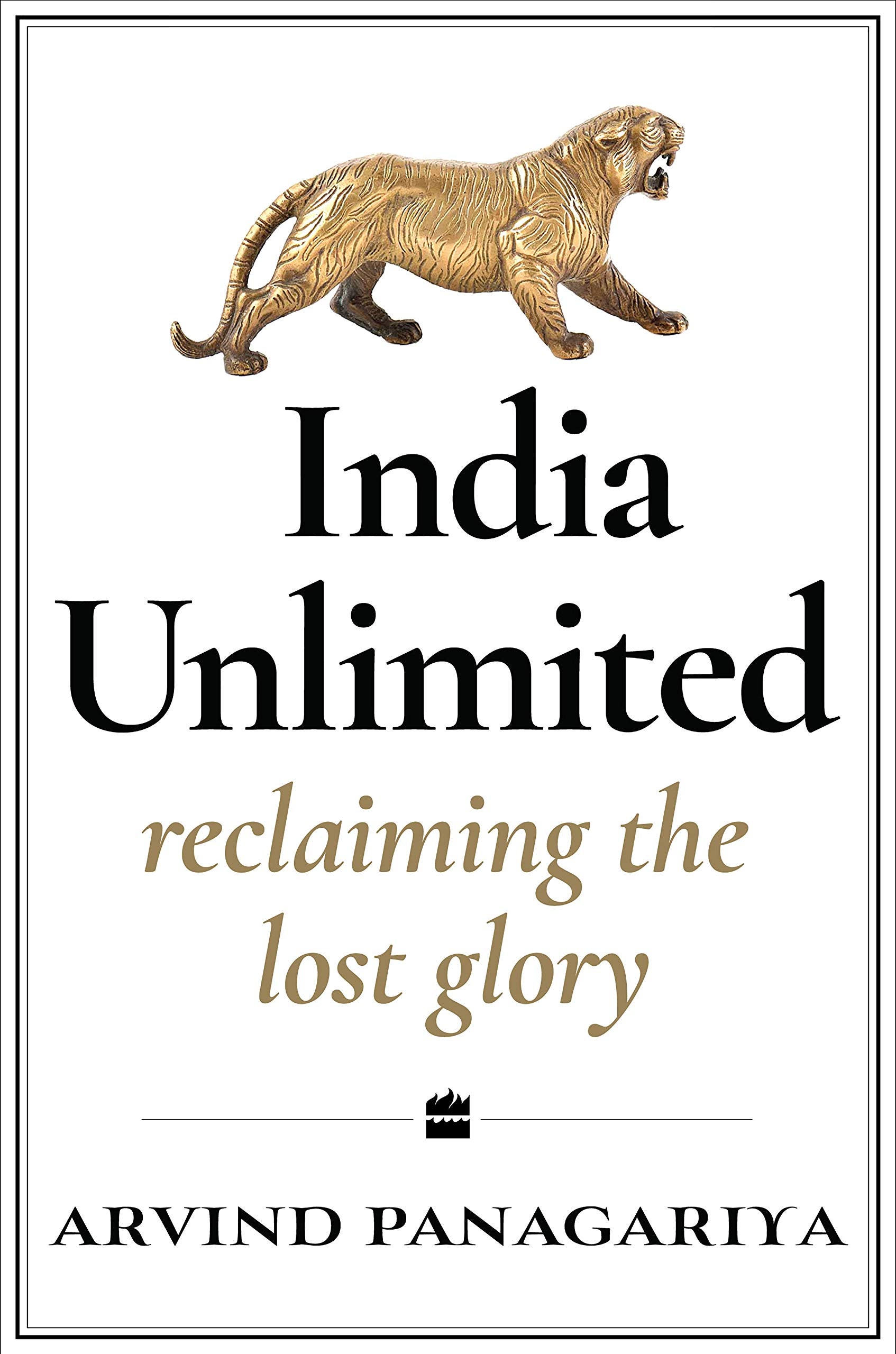
| Book Title: | India Unlimited – Reclaiming the Lost Glory |
| Author/s: | Arvind Panagariya |
| Abstract: | The publication is based on the long-standing debate about India in the world economy and its ability to capitalise on its advantages to emerge as a global economic power. The author, Arvind Panagariya, objectively assesses India’s post-independence journey as an economy – its policies and their shortfalls – and goes on to suggest reforms across various dimensions. The book provides the right interface of economic theory, ground realities, policy analyses and plausible reforms. Given its contemporary nature, the reviewer, Deeparghya Mukherjee, recommends it to anyone interested in the Indian economy and political economy of development. |
| Book Review : | India Unlimited – Reclaiming the Lost Glory |
| Reviewer/s: | Deeparghya Mukherjee |
| Date: | 30 December 2020 |
| Read More |
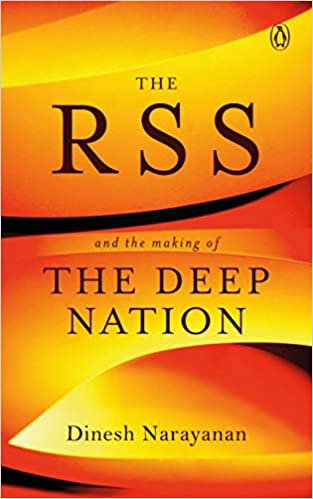
| Book Title: | The RSS and the making of The Deep Nation |
| Author/s: | Dinesh Narayanan |
| Abstract: | This book is an objective and non-partisan account of the Rashtriya Swayamsewak Sangh, of which the ruling Bharatiya Janata Party is the political front. It dives deep into the stand taken by the RSS on the watershed moments of India while cogently demystifying the organisation and destroying many myths related to it. Packed with interesting incidents and anecdotes, the book covers a wide range of topics from Hindutva to economic policy, Kerala to gender inequality in the RSS. |
| Book Review : | The RSS and the making of The Deep Nation |
| Reviewer/s: | Nithya Subramanian |
| Video Interview: |
Have a meaningful description of the video here
|
| Date: | 4 December 2020 |
| Read More |

| Book Title: | Contest for the Indo-Pacific: Why China Won’t Map the Future |
| Author/s: | Rory Medcalf |
| Abstract: | The Indo-Pacific has emerged as the new geopolitical theatre of the 21st century. The future contest in this “global region” is often perceived with a focus on the rivalry between the United States (US) and China. In the book “Contest for the Indo-Pacific: Why China Won’t Map the Future,” Rory Medcalf identifies four main areas where the confrontation over the Indo-Pacific will take place: economics, military force, diplomacy and a clash of national narratives. The book enriches the ongoing debate on the Indo-Pacific with at least two dimensions: first, by highlighting the role of middle powers like India, Japan, Australia, Indonesia, South Korea and others that have been mostly neglected in previous works for the future development of the Indo-Pacific; and second, by emphasising the importance of the narratives in the future contestation. |
| Book Review : | Contest for the Indo-Pacific: Why China Won’t Map the Future |
| Reviewer/s: | Christian Wagner |
| Date: | 2 December 2020 |
| Read More |
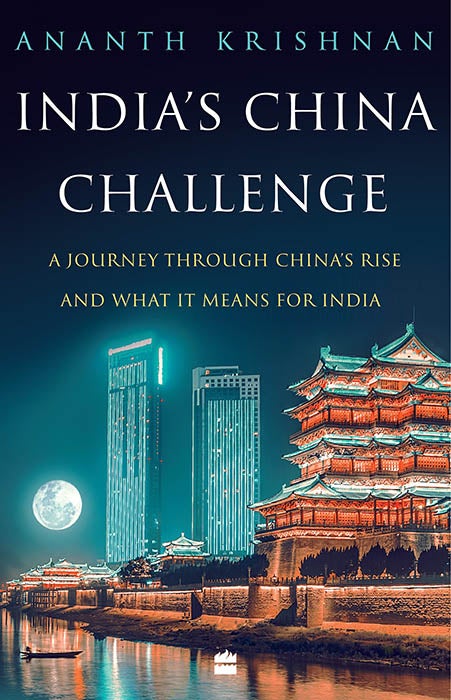
| Book Title: | India’s China Challenge: A Journey through China’s Rise and What It Means for India |
| Author/s: | Ananth Krishnan |
| Abstract: | This book tells a story of a complex political relation between two powerful neighbours – India and China – while also offering a first hand account of the author’s experiences of the country. It covers a wide range of subjects from President Xi Jinping’s leadership style to expansionist strategy, the government’s tight control on the media and historical narratives, its economic prowess, internal conflicts and its growing dominance in the Indo-Pacific region. The book comes at a time when the standoff between India and China in Eastern Ladakh has hit a stalemate, making it even more relevant. |
| Book Review : | India’s China Challenge: A Journey through China’s Rise and What It Means for India |
| Reviewer/s: | Nithya Subramanian |
| Video Interview: |
Have a meaningful description of the video here
|
| Date: | 30 October 2020 |
| Read More |
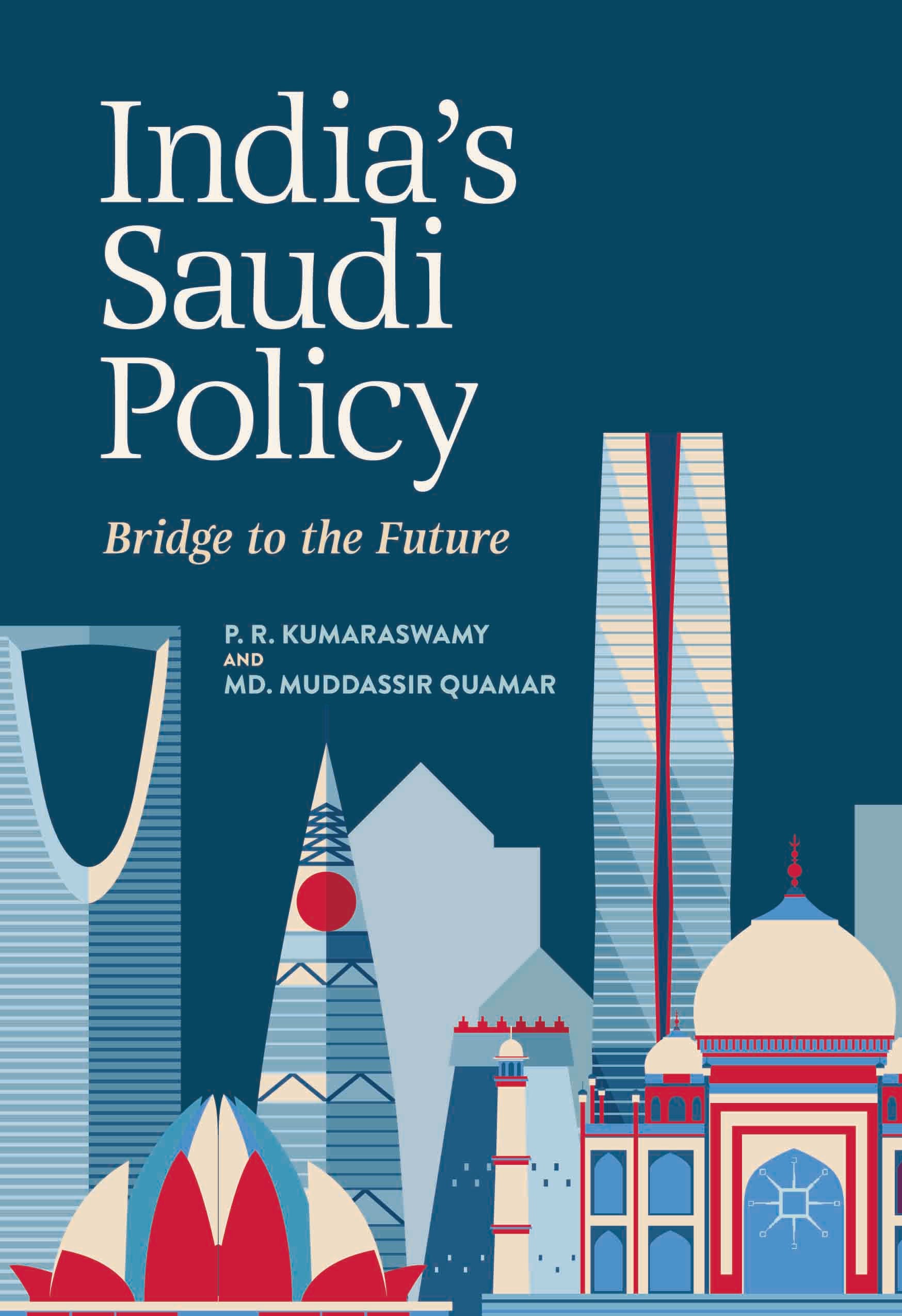
| Book Title: | India’s Saudi Policy: Bridge to the Future |
| Author/s: | P R Kumaraswamy & Md Muddassir Quamar |
| Abstract: | India’s relations with Saudi Arabia has evovled and improved over the years resulting in greater political engagment between the two countries. What role did the ‘Pakistan’ factor play and did it use the Organisation of Islamic Cooperation to push the Kashmir issue? Over the years, have India and Saudi Arabia strengthened economic relations and what impact will a dwindling American influence in the Gulf region have on this relationship? This book tries to address several such questions, while also tracing historical, trade and cultural connections. It ends with a suggestion that besides enhancing bilateral ties, India must focus on the Islamic dimension that could yield substantial gains. |
| Book Review : | India’s Saudi Policy: Bridge to the Future |
| Reviewer/s: | Nithya Subramanian |
| Video Interview: |
Have a meaningful description of the video here
|
| Date: | 23 October 2020 |
| Read More |
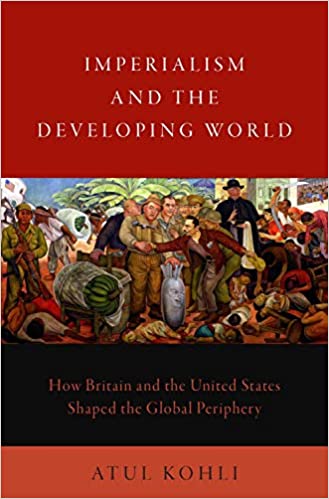
| Book Title: | Imperialism and the Developing World: How Britain and the United States Shaped the Global Periphery |
| Author/s: | Atul Kohli |
| Abstract: | How did Western imperialism shape the developing world? In Imperialism and the Developing World, Atul Kohli tackles this question by analysing British and American influence on Asia, Africa, the Middle East and Latin America from the age of the British East India Company to the most recent United States (US) war in Iraq. He argues that both Britain and the US expanded to enhance their national economic prosperity and shows how Anglo-American expansionism hurt economic development in poor parts of the world. Kohli contends that two forms of empire – formal and informal – have repeatedly undermined the prospects of steady economic progress in the global periphery. As Kohli lays bare, sovereignty is an economic asset; it is a precondition for the emergence of states that can foster prosperous and inclusive industrial societies. |
| Book Review : | The Importance of Independence |
| Reviewer/s: | Diego Maiorano |
| Date: | 20 October 2020 |
| Read More |
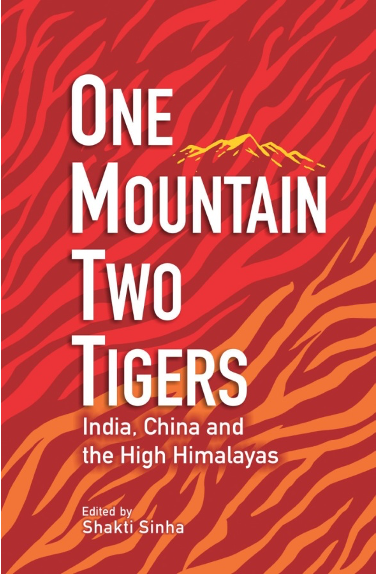
| Book Title: | One Mountain Two Tigers: India, China and the High Himalayas |
| Author/s: | Shakti Sinha |
| Abstract: | The May-June standoff in Ladakh between the Indian Army and the Chinese PLA caught not just India but the world by surprise as everyone's attention was on tackling the Covid-19 pandemic. Why did China choose this moment to become an aggressor militarily? What are the lingering disputes between these Asian giants who would soon become the top two economies in the world? What have been the historical links between these areas and the Indian mainland? What is the geostrategic importance of Ladakh? Did internal tensions within the Chinese Communist Party cause relations with India to break down? This book addresses these, and many such questions, in detail. It brings in topics of history, trade and cultural connections across the Himalayas to better understand how and why the India-China border dispute arose and to engender a better appreciation of the ground situation as well as take a macro view of the relationship. |
| Book Review : | One Mountain Two Tigers: India, China and the High Himalayas |
| Reviewer/s: | John Vater |
| Video Interview: |
Have a meaningful description of the video here
|
| Date: | 28 September 2020 |
| Read More |
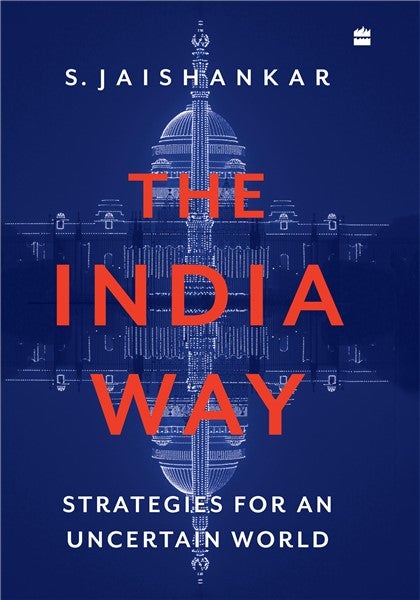
| Book Title: | The India Way: Strategies for an Uncertain World |
| Author/s: | S Jaishankar |
| Abstract: | This book uses the Mahabharata to explore the current global strategic problems and India’s foreign policy challenges. The author, who is also India’s External Affairs Minister, finds this epic to be a vivid distillation of Indian thought on statecraft, which also provides a graphic account of real-life situations and complex challenges faced by leaders even today. The Indian study of foreign policy has so far been rooted in European history and Western political thought, but that is beginning to change. This new scholarship, which draws from an ancient epic, underlines its universal relevance. |
| Book Review : | The Mirror of Epic |
| Reviewer/s: | Chilamkuri Raja Mohan |
| Date: | 18 September 2020 |
| Read More |
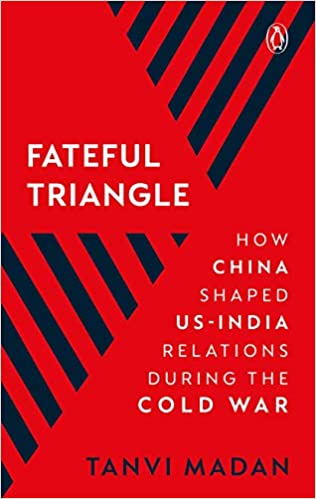
| Book Title: | Fateful Triangle: How China Shaped US-India Relations during the Cold War |
| Author/s: | Tanvi Madan |
| Abstract: | In Fateful Triangle, Tanvi Madan argues that China's influence on the U.S.-India relationship is neither a recent nor a momentary phenomenon. Drawing on documents from India and the United States, she shows that American and Indian perceptions of and policy toward China significantly shaped U.S.-India relations in three crucial decades, from 1949 to 1979. Fateful Triangle updates our understanding of the diplomatic history of U.S.-India relations, highlighting China's central role in it, reassesses the origins and practice of Indian foreign policy and nonalignment, and provides historical context for the interactions between the three countries. Madan's assessment is of more than historic interest. A key question today is whether the United States and India can, or should develop ever-closer ties as a way of countering China's desire to be the dominant power in the broader Asian region. |
| Book Review : | Fateful Triangle: How China Shaped US-India Relations during the Cold War |
| Reviewer/s: | Yogesh Joshi |
| Video Interview: |
Have a meaningful description of the video here
|
| Date: | 27 August 2020 |
| Read More |
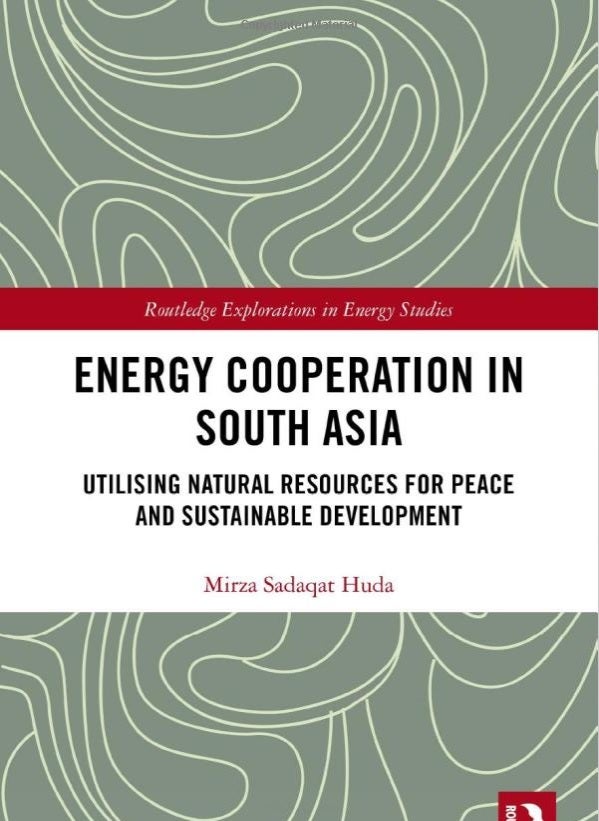
| Book Title: | Energy Cooperation in South Asia: Utilising Natural Resources for Peace and Sustainable Development |
| Author/s: | Mirza Sadaqat Huda |
| Abstract: | Regional cooperation has been substantiated as one of the most viable solutions to South Asia’s crippling energy crisis. However, three decades of national and regional efforts have failed to develop a single multilateral energy project or foster high levels of bilateral cooperation. Using data collected through extensive interviews with policymakers in India, Bangladesh, Pakistan and Nepal, this book identifies specific roadblocks, including domestic politics and the failure of leadership on multiple levels, and evaluates how these political challenges determine regional interactions on energy securitisation, environmental cooperation and human rights. The author then undertakes case studies on four transnational energy projects to highlight policy recommendations to overcome these challenges, suggesting planning mechanisms through which the significant issue of energy cooperation in South Asia can be addressed. |
| Book Review : | Fueling South Asia’s Energy Goals |
| Reviewer/s: | S Narayan |
| Date: | 11 August 2020 |
| Read More |
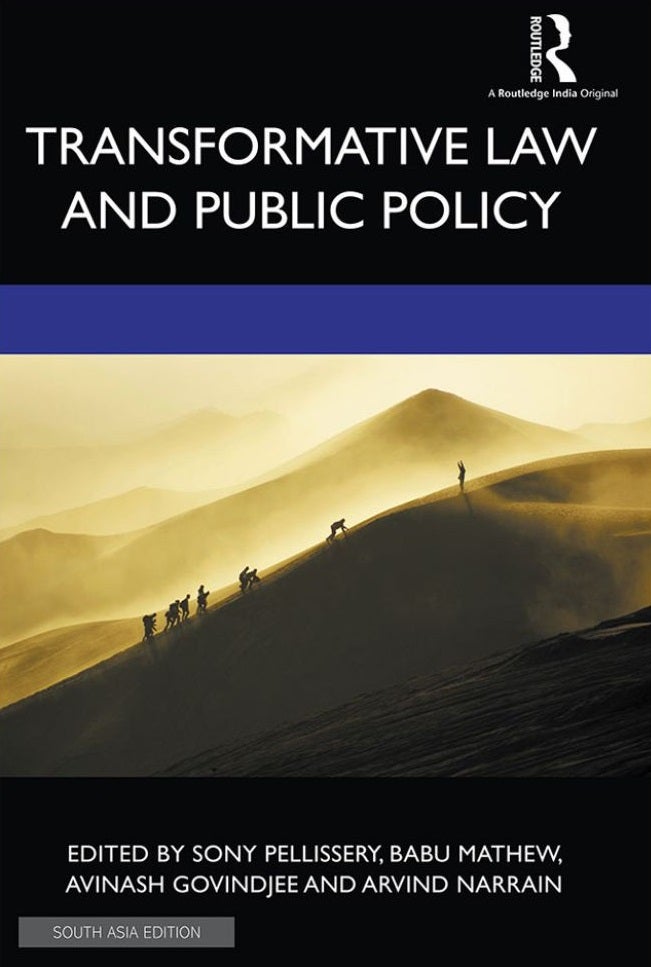
| Book Title: | Transformative Law and Public Policy |
| Author/s: | Eds. Sony Pellissery, Babu Mathew, Avinash Govindjee, Arvind Narrain |
| Abstract: | This book explores the convergence of law and public policy. Drawing on case studies from Asia, Europe, the Middle East and Australia, it examines how judicial and political institutions are closely linked to the socio-economic concerns of the citizens. The essays argue for the utilisation of the legislative and executive, and private and public spheres of society as vehicles for transformative social change and to safeguard against violations of socio-economic rights. The volume will be of great interest to both public and private stakeholders, as well as professionals, including non-government organisations and think tanks, working in the areas of law, government and public policy. It will also be immensely useful to academics and researchers of constitutionalism, policy-making and policy integration, social justice and minority rights. |
| Book Review : | The Constitution Matters |
| Reviewer/s: | Vinod Rai |
| Date: | 28 July 2020 |
| Read More |
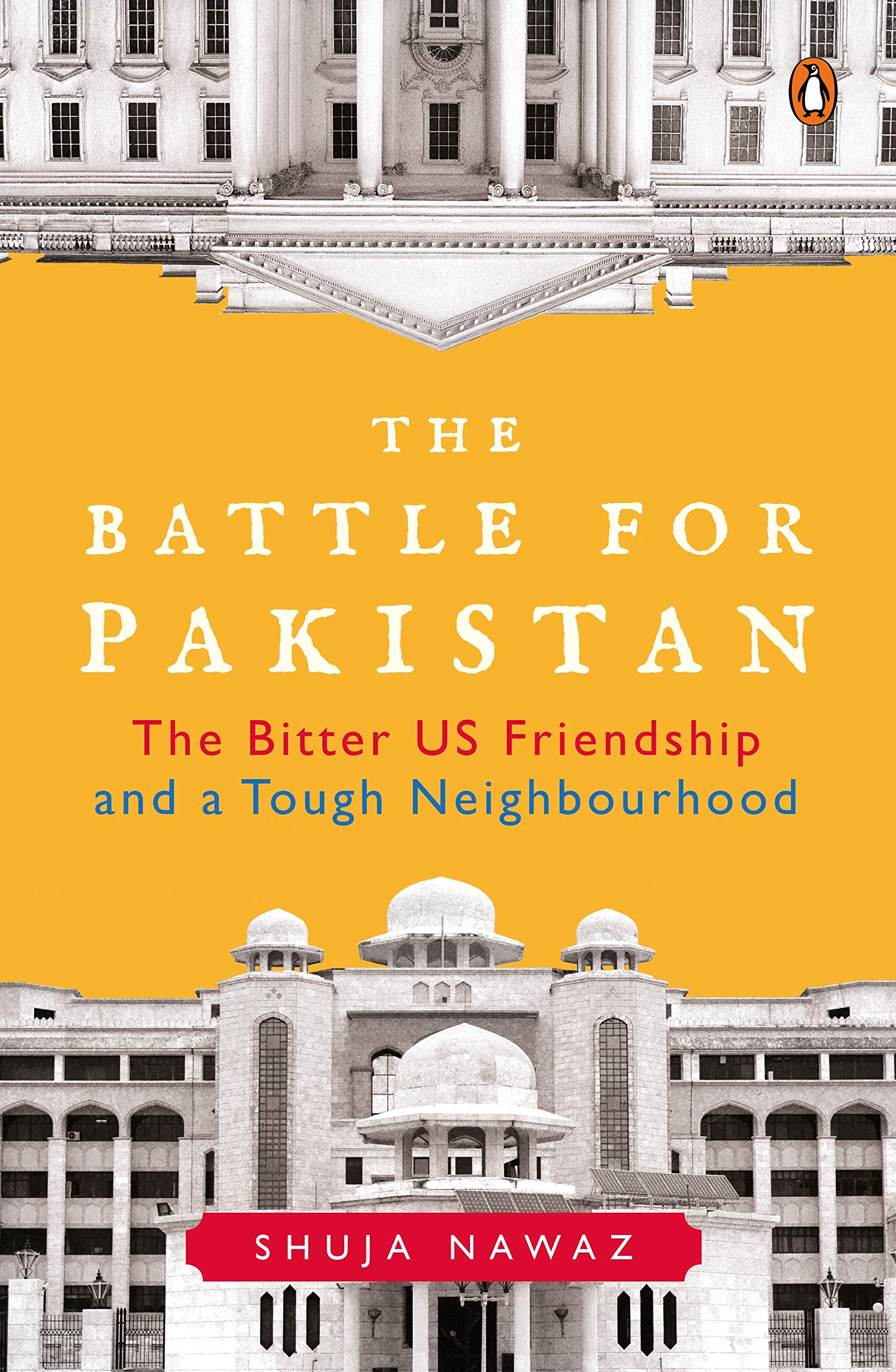
| Book Title: | The Battle for Pakistan: The Bitter US Friendship and a Tough Neighbourhood |
| Author/s: | Shuja Nawaz |
| Abstract: | The Battle for Pakistan showcases a marriage of convenience between unequal partners. The relationship between Pakistan and the United States since the early 1950s has been nothing less than a whiplash-inducing rollercoaster ride. Today, surrounded by hostile neighbors, with Afghanistan increasingly under Indian influence, Pakistan does not wish to break ties with the United States. Nor does it want to become a vassal of China and get caught in the vice of a US-China rivalry, or in the Arab-Iran conflict. Based on detailed interviews with key US and South Asian leaders, access to secret documents and operations, and the author's personal relationships and deep knowledge of the region, this book untangles the complex web of the US-Pakistani relationship and identifies a clear path forward, showing how the United States can build better partnerships in troubled corners of the world. |
| Book Review : | Survival Games |
| Reviewer/s: | Iftekhar Ahmed Chowdhury |
| Date: | 6 July 2020 |
| Read More |
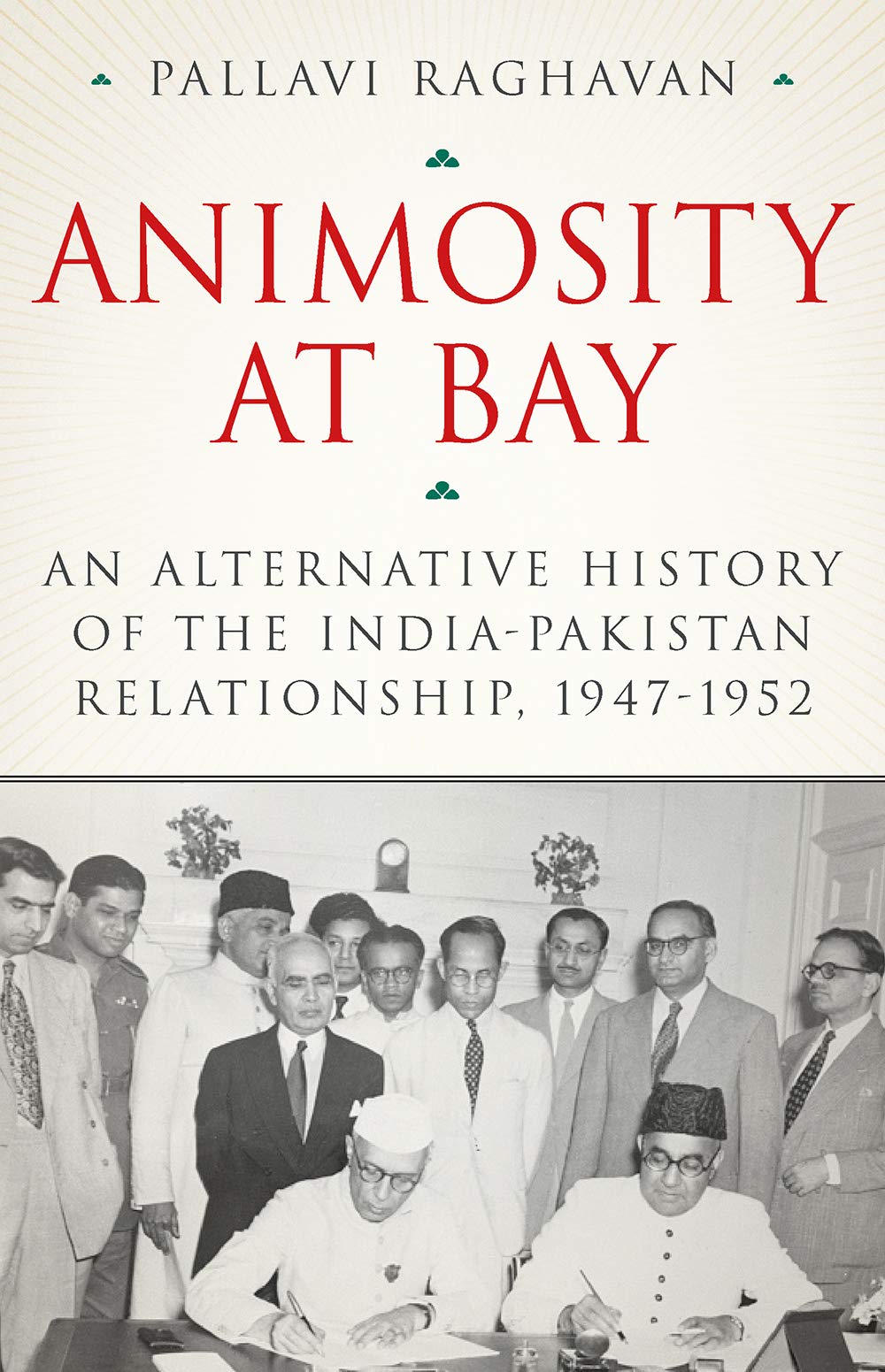
| Book Title: | Animosity at Bay: An Alternative History of the India-Pakistan Relationship, 1947-1952 |
| Author/s: | Pallavi Raghavan |
| Abstract: | The book shows how amity and a spirit of cordiality governed relations between the states of India and Pakistan in the first five years after partition. Arguing that a hitherto overlooked set of considerations have to be integrated more closely into the analysis of bilateral dialogue, this book analyses the developments leading to the ‘No War’ correspondence between Nehru and Liaquat Ali Khan, the signing of a ‘Minorities’ Pact between the two prime ministers, and the early stages of the Indus Waters negotiations, as well as exploring the calculations of Indian and Pakistani delegates at a series of interdominion conferences held in the years after partition. |
| Book Review : | When Foes Spoke |
| Reviewer/s: | Karthik Nachiappan |
| Special Guest/s: | Pallavi Raghavan, Gyanesh Kudaisya, C Raja Mohan |
| Video Interview: |
Have a meaningful description of the video here
|
| Date: | 22 June 2020 |
| Read More |
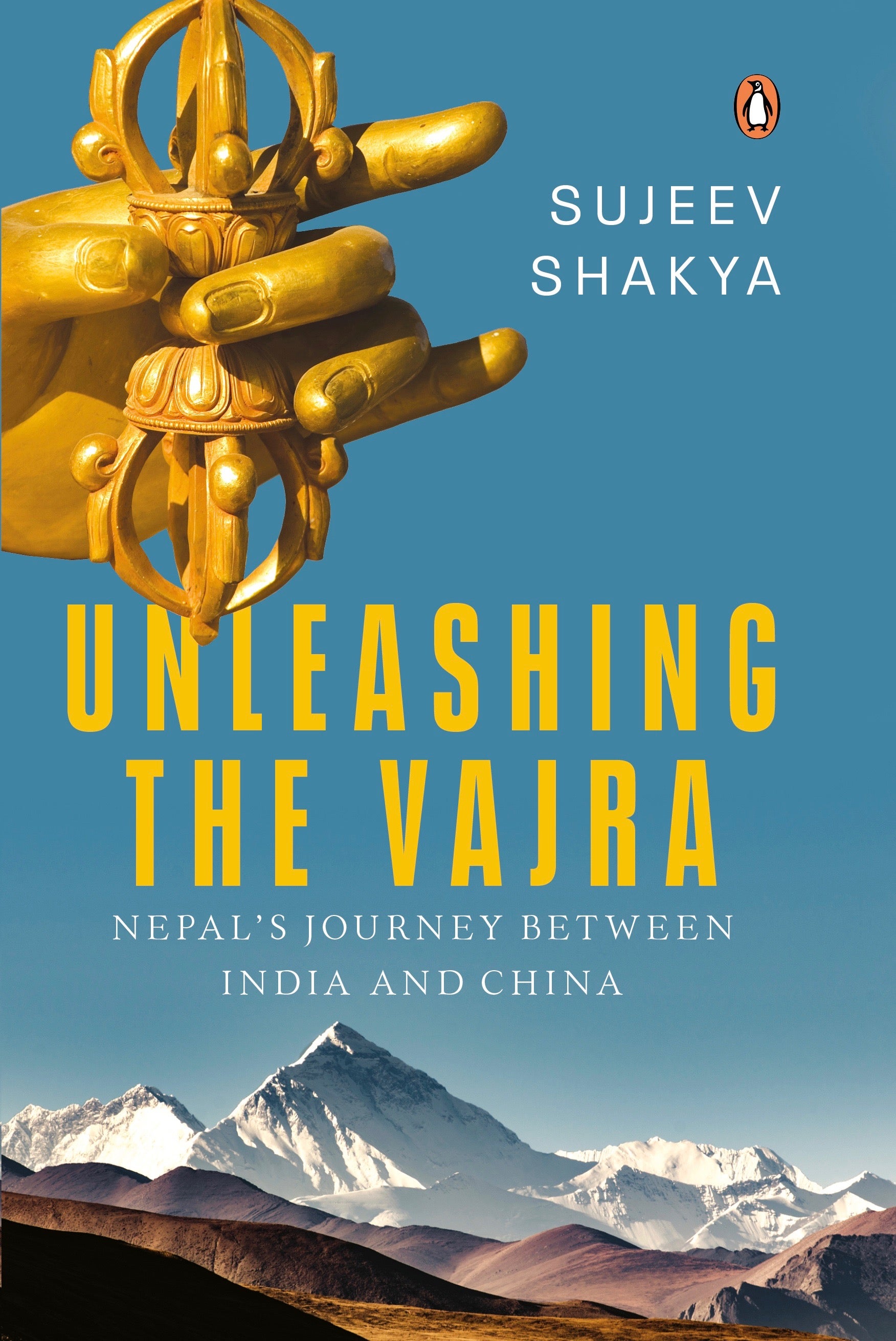
| Book Title: | Unleashing the Vajra: Nepal’s Journey Between India and China |
| Author/s: | Sujeev Shakya |
| Abstract: | Nepal’s great advantage is its location between India and China, particularly now as these two Asian gaints are set to be the world’s leading economies in 2050. Nepal has historically been at its most prosperous when it has leveraged this geographical position. Today, this opportunity emerges again—and in order to take advantage of the growth of India and China, Nepal needs to hitch its wagon to the fast-moving engines to its north and south. |
| Book Review : | Unleashing the Vajra: Nepal’s Journey Between India and China |
| Reviewer/s: | John Joseph Vater |
| Video Interview: |
Have a meaningful description of the video here
|
| Date: | 15 June 2020 |
| Read More |
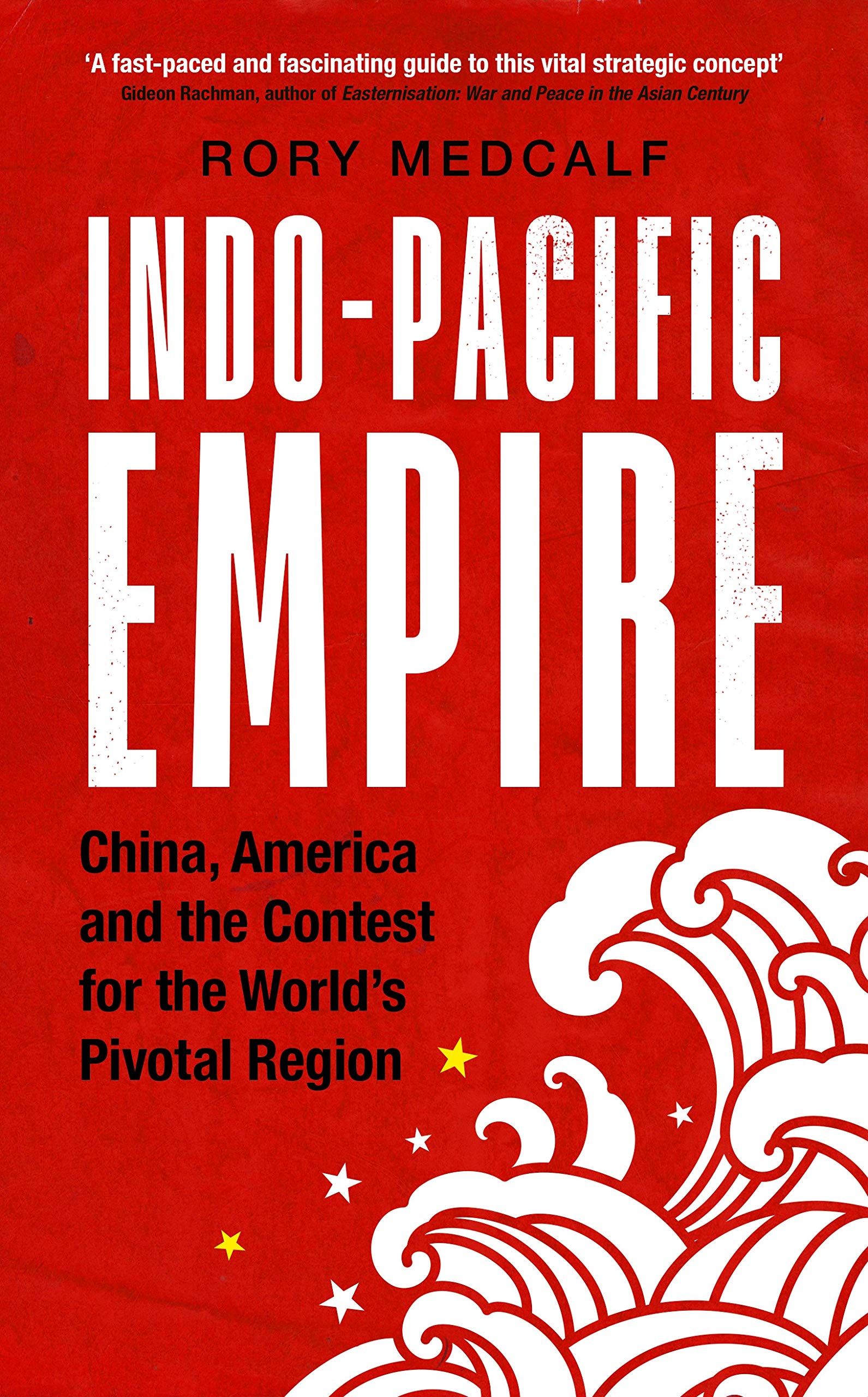
| Book Title: | Indo-Pacific Empire: China, America and the Contest for the World’s Pivotal Region |
| Author/s: | Rory Medcalf |
| Abstract: | The Indo-Pacific is both a place and an idea. It is the region central to global prosperity and security. It is also a metaphor for collective action. If diplomacy fails, it will be the theatre of the first general war since 1945. But if its future can be secured, the Indo-Pacific will flourish as a shared space, the centre of gravity in a connected world. Written by a recognised expert and regional policy insider, this is the definitive guide to tensions in the region. It weaves together history, geopolitics, cartography, military strategy, economics, games and propaganda to address a vital question: how can China’s dominance be prevented without war? |
| Book Review : | Indo-Pacific Empire: China, America and the Contest for the World’s Pivotal Region |
| Reviewer/s: | Yogesh Joshi |
| Special Guest/s: | Rory Medcalf, Malcolm Cook, C Raja Mohan |
| Video Interview: |
Have a meaningful description of the video here
|
| Date: | 1 June 2020 |
| Read More |
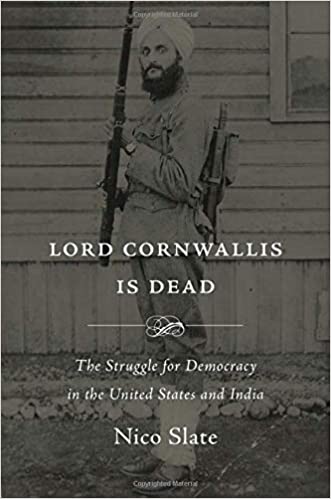
| Book Title: | Lord Cornwallis Is Dead: The Struggle for Democracy in the United States and India |
| Author/s: | Nico Slate |
| Abstract: | Spanning three centuries and two continents, Lord Cornwallis Is Dead offers a new look at the struggle for freedom that linked two nations. While the United States remains the world’s most powerful democracy, India―the world’s most populous democracy―is growing in wealth and influence. Together, the United States and India will play a predominant role in shaping the future of democracy. |
| Book Review : | Lord Cornwallis Is Dead: The Struggle for Democracy in the United States and India |
| Reviewer/s: | Karthik Nachiappan |
| Video Interview: |
Have a meaningful description of the video here
|
| Date: | 28 May 2020 |
| Read More |
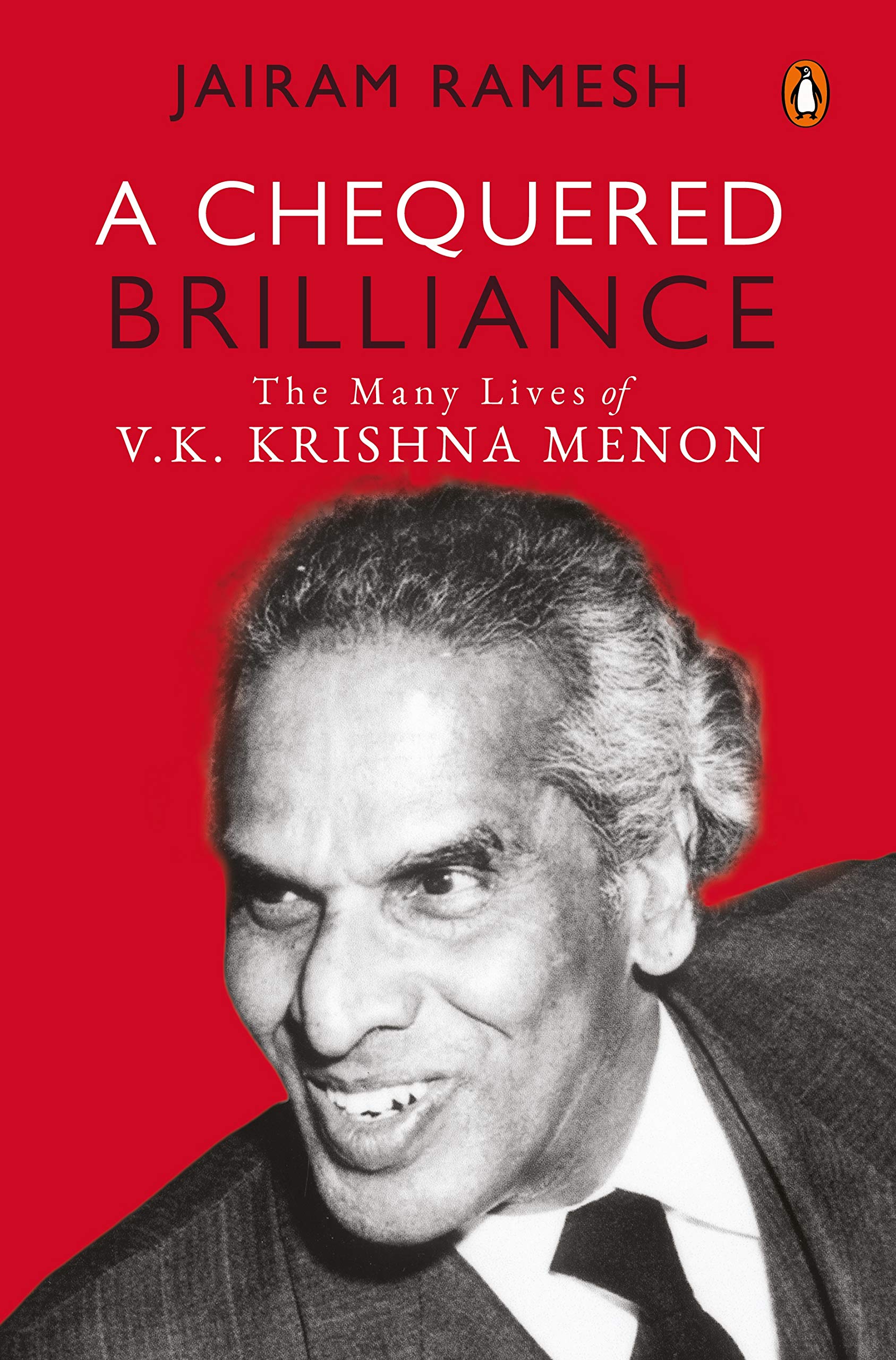
| Book Title: | A Chequered Brilliance: The Many Lives of V K Krishna Menon |
| Author/s: | Jairam Ramesh |
| Abstract: | This is a compelling biography of one of India's most controversial and consequential public figures. V.K. Krishna Menon continues to command our attention not just because he was Jawaharlal Nehru's confidant and soulmate but also for many of his own political and literary accomplishments. A relentless crusader for Indian independence in the UK in the 1930s and 1940s, he was a global star at the United Nations in the 1950s before he was forced to resign as defence minister in the wake of the India-China war of 1962. |
| Book Review : | A Life Complicated and Strange |
| Reviewer/s: | Robin Jeffrey |
| Date: | 26 May 2020 |
| Read More |
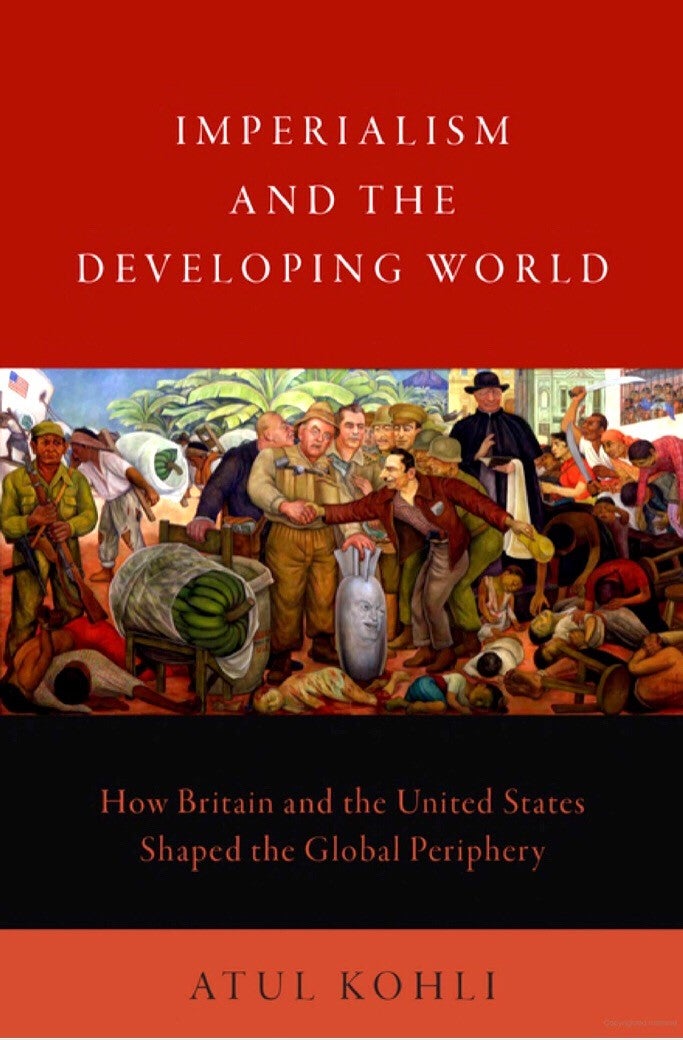
| Book Title: | Imperialism and the Developing World: How Britain and the United States Shaped the Global Periphery |
| Author/s: | Atul Kohli |
| Abstract: | This is a compelling biography of one of India's most controversial and consequential public figures. V.K. Krishna Menon continues to command our attention not just because he was Jawaharlal Nehru's confidant and soulmate but also for many of his own political and literary accomplishments. A relentless crusader for Indian independence in the UK in the 1930s and 1940s, he was a global star at the United Nations in the 1950s before he was forced to resign as defence minister in the wake of the India-China war of 1962. |
| Book Review : | Imperialism and the Developing World: How Britain and the United States Shaped the Global Periphery |
| Reviewer/s: | Diego Maiorano |
| Special Guest/s: | Atul Kohli, Rani D Mullen, Karthik Nachiappan |
| Video Interview: |
Have a meaningful description of the video here
|
| Date: | 20 May 2020 |
| Read More |
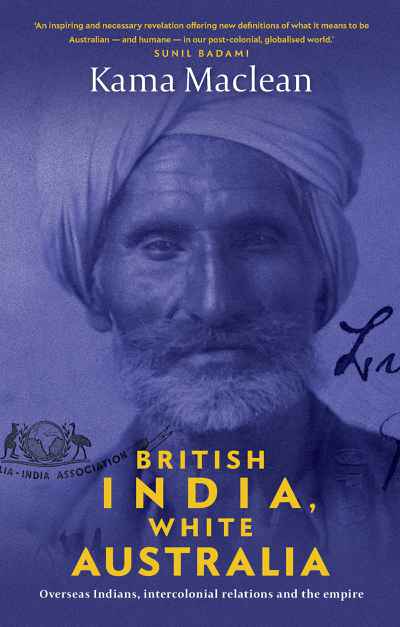
| Book Title: | British India, White Australia: Overseas Indians, intercolonial relations and the empire |
| Author/s: | Kama Maclean |
| Abstract: | British India, White Australia explores connections between Australia and India through the lens of the British Empire by tracing the lives of people of Indian descent in Australia, from Australian Federation to Indian independence. The White Australia Policy was firmly in place while both countries were part of the British Empire. Australia was nominally self-governing but still attached very strongly to Britain; India was driven by the desire for independence. The racist immigration policies of dominions like Australia, and Britain’s inability to reform them, further animated nationalist sentiments in India. In this original, landmark work Kama Maclean calls for more meaningful dialogue about and acknowledgment of the constraints placed upon Indians in Australia and those attempting to immigrate. |
| Book Review : | British India, White Australia: Overseas Indians, intercolonial relations and the empire |
| Reviewer/s: | Robin Jeffrey |
| Special Guest/s: | Kama Maclean |
| Video Interview: |
Have a meaningful description of the video here
|
| Date: | 27 April 2020 |
| Read More |
Load more


